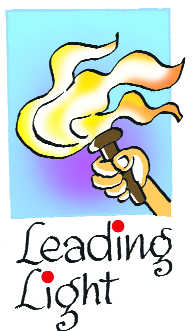
Samir Malhotra
For all the hankering after name and fame, there are people who leave their mark by their exemplary, and nonchalantly scrupulous at the same time, approach to life and work. Chandigarh’s old-timers may remember Dr Kochhar — his full name escapes me, but that does not matter. It would not have mattered to the good doctor too.
Dr Kochhar had a clinic near Nehru Park in Sector 22. A family physician who you could trust blindly, he was an internist, a paediatrician, an infectious disease specialist, a geriatrician, and a surgeon (only minor surgeries were conducted), all combined. He was an MBBS.
He often appeared rude on the outside, at least to those who did not know him well. Thoroughly competent, he frequently refused to prescribe medicines when he thought them unnecessary — a habit that actually cost him a large number of patients, his only marketing being word-of-mouth. It was not unusual for him to say to a patient, who would insist that he prescribe some medication, in chaste Punjabi, “Bibi, pher ilaj aape hi kar lai, mere kol kyon aayee?” (Madam, why did you come to me? Do your own treatment).
Once when a lady brought her child with flu and insisted he prescribe some antibiotic, he called his own daughter from the backyard — nasal secretions were coming out of both her nostrils!
He had never heard of the smart catchphrases like “EBM” (Evidence Based Medicine), “Rational Use of Drugs”, “Combating antimicrobial resistance: No action today, no cure tomorrow” or “Competency Based Medical Education”. He simply knew no other way; to him, irrational or unnecessary prescribing had no meaning.
Physicians all over the world are today often accused of succumbing to the pharma and device industry or hospital pressures in prescribing unwanted medicines or devices. In the most recent case, a cardiologist in the US is facing lawsuits from hundreds of patients for unnecessarily implanting pacemakers and stents. Probably such pressures were minimal in those years, but if Dr Kochhar had such pressures, he never allowed them to influence his practice.
There are many anecdotes that keep his memory alive. This one is 25 years old. A freshly graduated MBBS went to him with a history of high grade fever and a little throat irritation for two days, proudly announcing that he had already started an antibiotic. Dr Kochhar prescribed him chloroquine. No investigations were ordered, nor any referrals needed. The doctor-patient was asked to return after three days. The patient returned, vastly improved. Dr Kochhar smiled, and in his typical dry humorous style told the young doctor, “Now you can take your medication.”
We will never find out whether his diagnosis was correct, if correct, was it by chance, or was it his skill, learned during his MBBS, combined with experience and intuition. I would bet on the latter though.
A lady in her forties developed some pain in the abdomen and started vomiting — this true story is about 40 years old. The family decided to see a specialist who was located close to their house. The specialist prescribed some medication and sent her home. Many times the patient or the family have an inkling that something is seriously wrong. They decided to see Dr Kochhar and a cycle rickshaw was called. Dr Kochhar examined the patient and told the family to take her to PGI immediately. It turned out that she had a ruptured ovarian cyst — a condition that is potentially fatal, even more so in those years. She was operated upon in PGI and it all ended well. This was probably his greatest expertise — he knew which patient he can manage himself and which he should refer. He sometimes performed minor surgeries in his clinic; he did not hesitate to drain an abscess from the foot of a child.
The MBBS graduates of today are well aware of the trendy slogans but many wouldn’t know the correct dose of a pain-relieving medicine. We constantly hear about our tertiary care institutions like PGI being overburdened — about 10,000 patients come to the OPDs of PGI daily. A large number of these patients do not need PGI. Only if there were more Dr Kochhars, MBBS, around, PGI doctors would then be able to give more time to patients genuinely needing specialist care, and also spend more time on research and education, two areas which find mention in the full name of PGIMER — Postgraduate Institute of Medical Education and Research.
An extremely interesting personality, Dr Kochhar had a keen sense of politics and social affairs. It was not unusual for him to tell a poor patient who offered fees, “Rehne do, iska khana kha lena” (leave it, have food instead).
How we miss him and scores of others like him whose MBBS degree actually meant Bachelor of Medicine and Bachelor of Surgery, and who could put that into practice.
The writer is a Professor at PGI



























